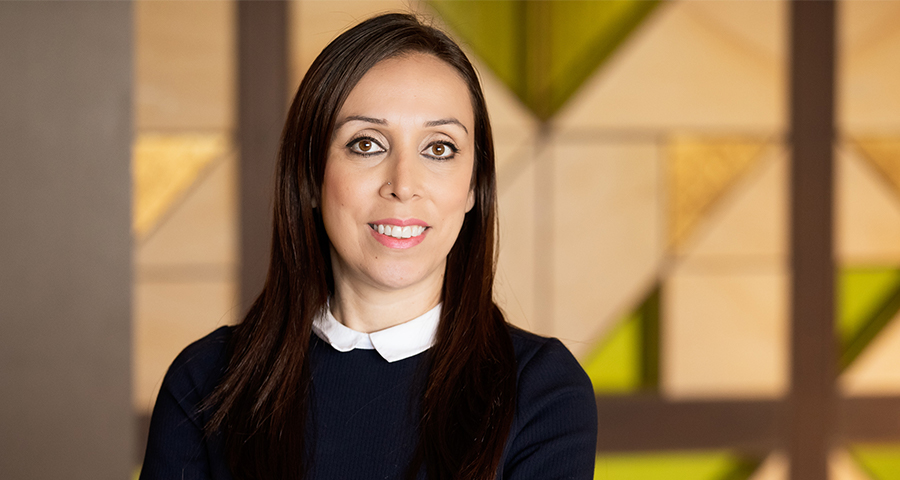
QF creates culture of well-being through a connected and caring campus
In The Peninsula, September 7, 2020
Dr. Atorina Benjamin, psychologist at Carnegie Mellon University in Qatar, a Qatar Foundation partner university, on the impact health and wellness can have on a student’s academic performance.
Well-being is a key component of the overall experience for students at Carnegie Mellon University in Qatar (CMU-Q), a Qatar Foundation partner university. The campus realizes that if students are not emotionally and physically well, this will have a direct impact on their academic performance and experience.
During the past six months, CMU-Q was operating in the online therapy modality via Zoom. The number of cancelled or missed sessions have decreased significantly, according to Dr. Atorina Benjamin, psychologist at CMU-Q.
“Students have been committed to their treatment and have been quite eager to manage their pre-existing symptoms and those that have surfaced or resurfaced during COVID-19 lockdown,” she added.
Early on when the lockdown was imminent, the Department of Student Affairs at CMU-Q realized that international students residing in the dorms would be quite vulnerable to loneliness and an increased feeling of isolation. Therefore, each of those students were assigned a Student Affairs staff member who would check in with them frequently to make sure that they were doing okay and felt supported. If they had any specific issues, they could directly reach out to their assigned staff member so that the issue could be resolved immediately.
The Department of Student Affairs started a Food Pantry in each of the dorms and stocked it on a weekly basis. This was available to all the Education City students staying in the dorms. This initiative spread as other partner universities also teamed up to stock the food pantry.
“We then moved to providing our students in the dorms with care packages that were delivered to them every other week. We felt that these initiatives were important so that our international students, who were residing in the dorms, felt supported and connected with their CMU-Q community. This also allowed us to connect with them and to make sure that they were keeping well,” said Benjamin.
In addition, one of the main goals for the New Student Orientation this year was to focus on creating a sense of belongingness to the CMU-Q community as well as foster an inclusive and diverse community through meaningful one-on-one relationships with other students in their class year, upper-class students, faculty, and staff.
“When we are remote, it is harder to build those one on one connection since you cannot casually “run into” someone else and building relationships takes a lot more work – emails, texts, and scheduled Zoom calls. We built in “Karak hours” into our programming to help foster those connections in a casual space. In addition, we hosted daily check-ins to make sure that we were keeping in touch with our students and that they were doing well,” said Benjamin.
Also in order to encourage overall well-being, CMU-Q has conducted workshops in the classrooms, amongst faculty and staff, and have also had sessions during the new student orientation to help set the standard from the beginning.
“We are also hosting a Virtual Wellness Fair this month that will allow students to meet with the various resources available to them on campus. This includes the Counseling and Psychological Services Office, Office of Disability Resources on main campus, Office of Health and Wellness, and the Office of Student Life. It is our goal that students will be able to get information about all the ways that their wellbeing is being supported on campus,” she said.
As topics of racism and mental health have always been key topics of conversation at CMU-Q, the campus encourages diversity and deal with any issues of racism head on.
“CMU-Q has created a new leadership role that focuses on creating a more diverse, inclusive and equitable learning and working community. This new role of Associate Dean, Diversity, and Climate has been appointed to Annette Vincent. A main goal and priority for CMU-Q is for students, faculty, and staff to feel supported, included, and that their differences are celebrated,” said Benjamin.
Globally, some campuses are moving towards a broader model of wellbeing with a focus on how to build a connected and caring campus culture, and not just focusing on triage and treatment. Benjamin believes that by providing a connected and caring campus culture, students are more likely to be better connected to resources that can help them in the case that they need it. “Triage and treatment are also not immediate, and by focusing on creating a culture of wellbeing, inclusion, and connectedness, we can help build up habits and strategies for students to succeed in the long run,” she said.
In the new academic year CMU-Q will continue to reach out to the community and provide workshops on mental health and wellbeing to our students, faculty and staff.
“The more direct and indirect exposure our students have to mental health treatment, the more likely they would be to reach out when they need help. A continued goal would be to work to decrease the stigma related to getting mental health support and treatment,” Benjamin added.
“We are a community that supports one another, and it is paramount that our students know that they have individuals that are there to help support them, which in turn will improve their academic, interpersonal, and overall experience,” she added.
Click here to learn more about Health and Wellness at CMU-Q.
